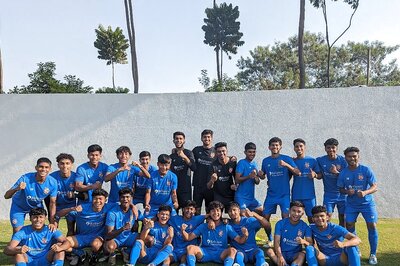
views
THIRUVANANTHAPURAM: The Genetic Engineering Appraisal Committee (GEAC), which had granted sanction for the field trial of genetically-modified (GM) rubber, is now having a rethink on the trial protocol, that was intended for seasonal GM crops rather than trees with a much longer life as in the case of rubber.The Rubber Research Institute was to conduct field trials at Thombikandom in Kottayam and Dapchari in Thane District of Maharashtra.The proposed trials at the two locations were for rubber trees which have been genetically-engineered to deal with drought tolerance and tapping panel dryness.The GEAC has now asked the Department of Biotechnology as well as the Review Committee on Genetic Manipulation that monitors the safety aspects of GM crops to ‘re-examine the matter taking into consideration the biology of the rubber plant and intended use’.It may be recalled that the Coalition for GM-Free India had pointed out the dangers of using a protocol developed for seasonal plants being used in the case of rubber, which is much more complex and with different type of interaction with the eco-system.“One major problem is that of leaf litter. They cannot be composted and have to be burnt. The RRI do not have any management plan for a tree with a lifespan as long as 14 years. All that the Rubber Research Institute is doing is efficacy testing,” said R Sridhar, convener of the Coalition for GM-Free India.“They do not even have a hypothesis for biosafety. They just assume everything is going to be safe, even the impact on soil and soil organisms,” he added.The Coalition for GM-Free Crops, in a letter to the GEAC, had said that the protocols and process instructions, clearly meant for a single-season crop had no provisions to address the requirements related to GM trees.They also pointed out that there were no precautions and suggestions for protecting the contamination of food chain such as preventing the honey bees from coming near these plants. The effects of genetically-modified pollen on contact with honeybees are unknown and if deleterious, will be carried over generations as well as populations.Two ministers of the previous state government handling agriculture and forest, Mullakkara Ratnakaran as well as Binoy Viswam had stiffly resisted the move to conduct field trials of GM rubber in the state.Binoy Viswam had called for a withdrawal of the sanction given to the trials, as it would be hazardous to try out GM crops near the Western Ghats, a biodiversity hotspot.In a letter that closely followed that of Binoy Viswam to the then Union Minister for Environment Jairam Ramesh, Mullakkara pointed out that agriculture was a state subject. “It is of serious concern for Kerala that this is the first such trial in a tree crop anywhere in India and this is being permitted in a biodiversity-rich region. This state has to protect its agriculture and its highly pristine and valuable biodiversity,” Mullakkara had said.


















Comments
0 comment